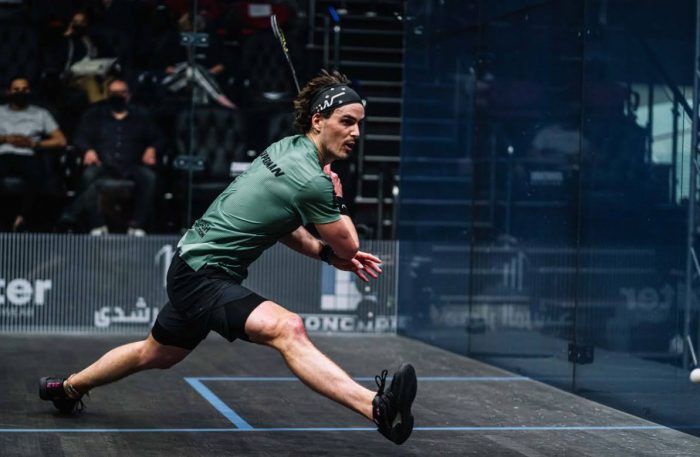When players reach a certain level, playing without variation is a very common amateur fault I see happening a lot. This can be especially true when players have found the joy and thrill of hitting the ball hard. Also when juniors get confident with their power game, overhitting becomes a real barrier to improvement.
Of course, it is a really satisfying feeling to fully unload on the ball and the sound it makes. And seeing it flying through the court to win the point. Also, how it is able to apply pressure on your opponent by hitting the ball hard, taking time away from them, and rushing them into playing their next shot.
But the big flaw is when this is all that is brought to the party. Just hard, hard, hard. It may feel nice for you, and you may be comfortable at doing it, but if this is the case for you, often your opponent may feel exactly the same and get used to it. When we are exposed to the same thing for a length of time it is very easy to get used to. Your opponent will be able to settle into this rhythm pretty quickly if they are of a certain level.
Ok, if you are playing at a high pace, not using much variation, you are able to keep your accuracy, and you are able to maintain your stamina (note the number of factors I have just listed that all must be just right) and you are winning, and it’s doing damage, then keep on going! I am not going to tell you to stop doing it if it is working right here and right now at the level you are at.
But I can promise and guarantee you there is a glass ceiling to this tactic and playing without variation will be your undoing if looking to get the best out of yourself and beat those players currently out of your reach.
 One amazing example of a player who plays with great variation right now is Paul Coll. He is arguably the strongest and fittest player on the tour and can hit the ball pretty damn hard to boot. But if you notice how much he varies the pace of the game. Yes, all the top players do it really well of course, but I think Paul is really nailing it in his game right now. And his results over the last 18 months reflect this.
One amazing example of a player who plays with great variation right now is Paul Coll. He is arguably the strongest and fittest player on the tour and can hit the ball pretty damn hard to boot. But if you notice how much he varies the pace of the game. Yes, all the top players do it really well of course, but I think Paul is really nailing it in his game right now. And his results over the last 18 months reflect this.
Next time you have the chance, watch (as well as listen to) how often he uses the lob to slow the pace down. It’s phenomenal, and this variation really keeps his opponents on their toes and not settling into a certain rhythm that they want to play at.
The lack of variation I often see is based on hard hitting, but do not forget that hitting the ball too slow, playing too many lengths, playing the ball in short too often, or using just straight lines are all limiters to your game as well.
Do have a game plan, a way you like to play, and express your super strengths. But, as much as you do this, be sure to bring in variation. If not now, then very soon. You will thank yourself for it. It’s such a key component to the game of squash that does get underutilized.
I go as far as to use “the V word” in my coaching a lot these days. The juniors and adults I coach roll their eyes when I bring out the V word and they then know they are being a bit too one-dimensional and getting stuck in their old ways when I bring it out and remind them of it.
My hope would be for you to be more mindful of the lack of variation in your game and put yourself out of your comfort zone to try and see if you can layer in some new skills to your current super strengths you already have. It is not easy to do of course, but the rewards will come with time and patience.
Good luck!
Jesse Engelbrecht
Sign up to the SquashSkills newsletter
Get world class coaching tips, straight to your inbox!